Detailed Overview of Education Exercise class 12
Introduction
Education the philosophical and ethical meaning of learning depending upon the childhood of Dr. APJ Abdul Kalam. The chapter points out the influences his childhood had on his personality and career development. It introduces major themes which include power of curiosity, the role of teachers, religious discrimination and resilience
Vocabulary and Life-Writing Forms
During the Working with Words stage, students are to learn more words and match each word with its meaning. They also investigate the idea of the various types of life-writing, e.g. hagiography, memoir, obituary. The mentioned elements make students learn more about autobiographical writing.
Reading Comprehension
The Comprehension part helps the students to sequence important events in the life of Kalam. It also has questions about his motives and problems. The chapter demonstrates how much he was interested in mathematics and how it was his teacher who made him passionate about aerospace by taking just one lesson in science. Moreover, it introduces a sad moment of religious prejudice, and these are the differences within the society at that period.
Critical Thinking and Reflection
The Critical Thinking activities encourage the learners to discuss the way in which teachers can influence life and the dependence of the choices made in the career path on the experiences obtained early. This part provokes the reader to pose intellectual questions to education, identity, and social issues.
Writing Practice
In the Writing part, the students write an autobiography. Such an activity involves associating the story with their life, as well as practicing narration writing, which contributes to the development of not only the skill of expression, but also of self-knowledge.
Grammar Focus
the Grammar section entails some contrastive connectives of the words like though, despite and even though. These patterns allow students to train combining sentences and this helps them write coherent and fluent texts.
Education
Working with words
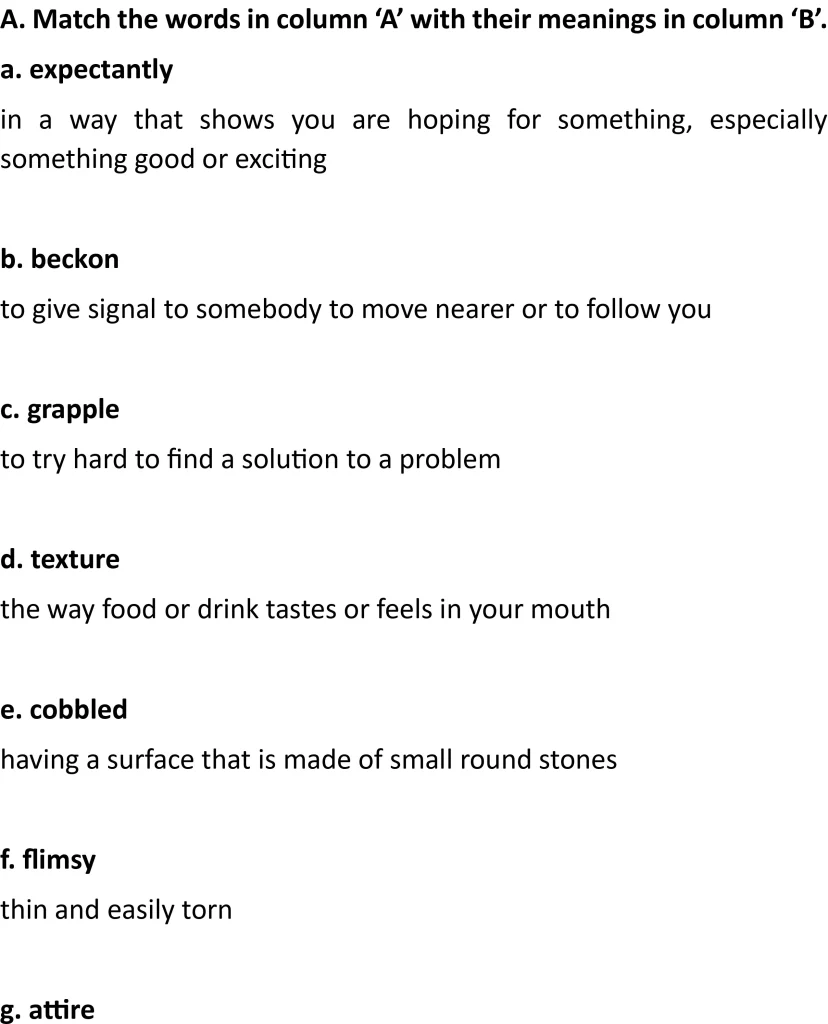

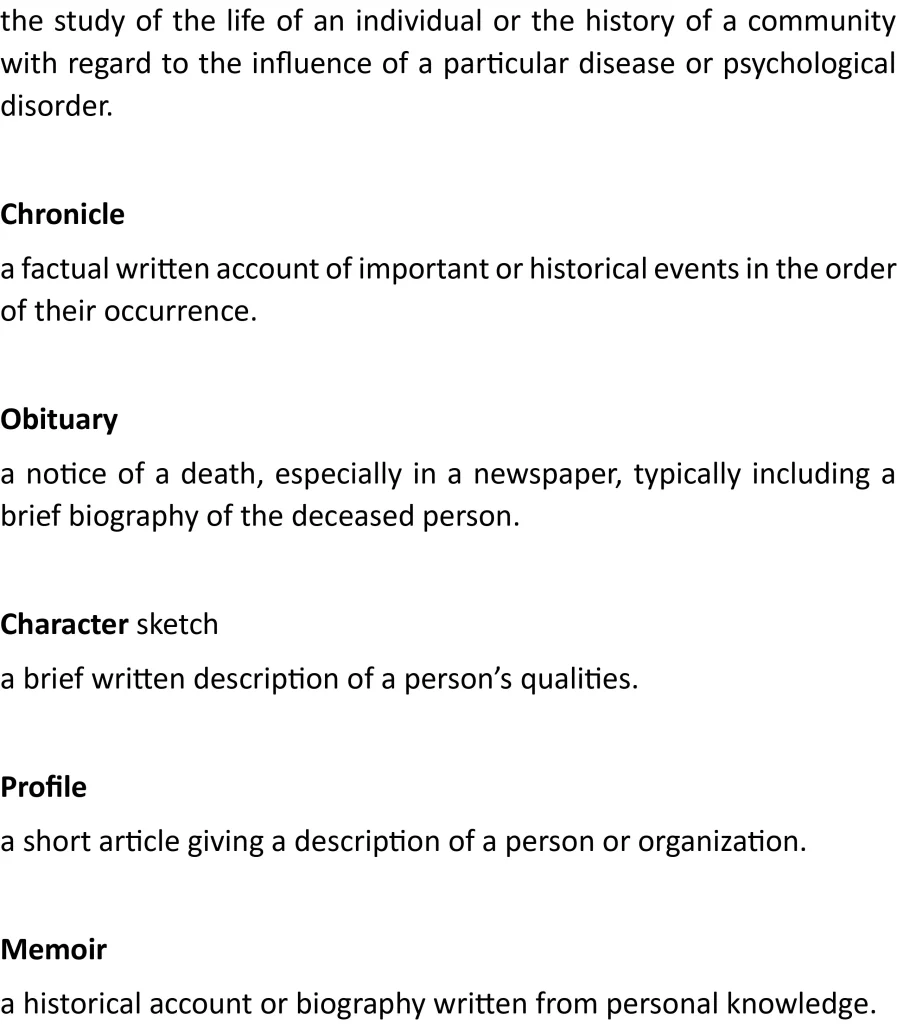
Comprehension

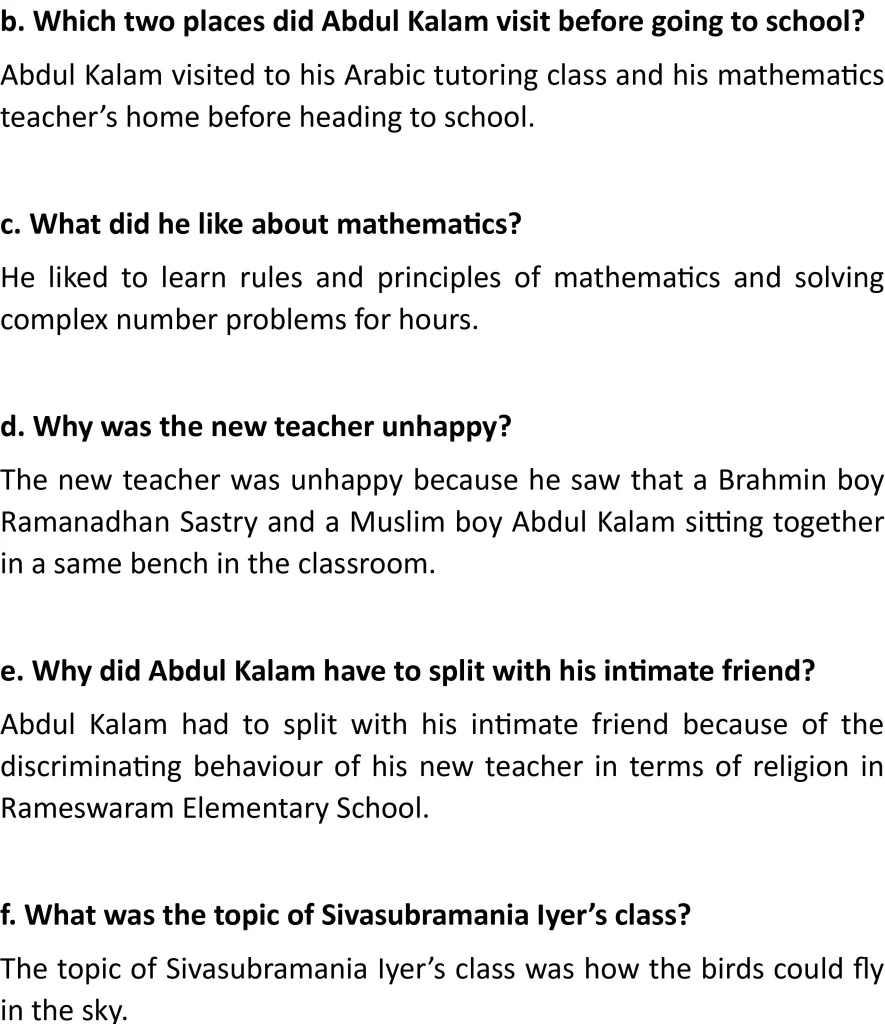

Continue reading the ‘Education Exercise’ in Meroguru app

Critical Thinking
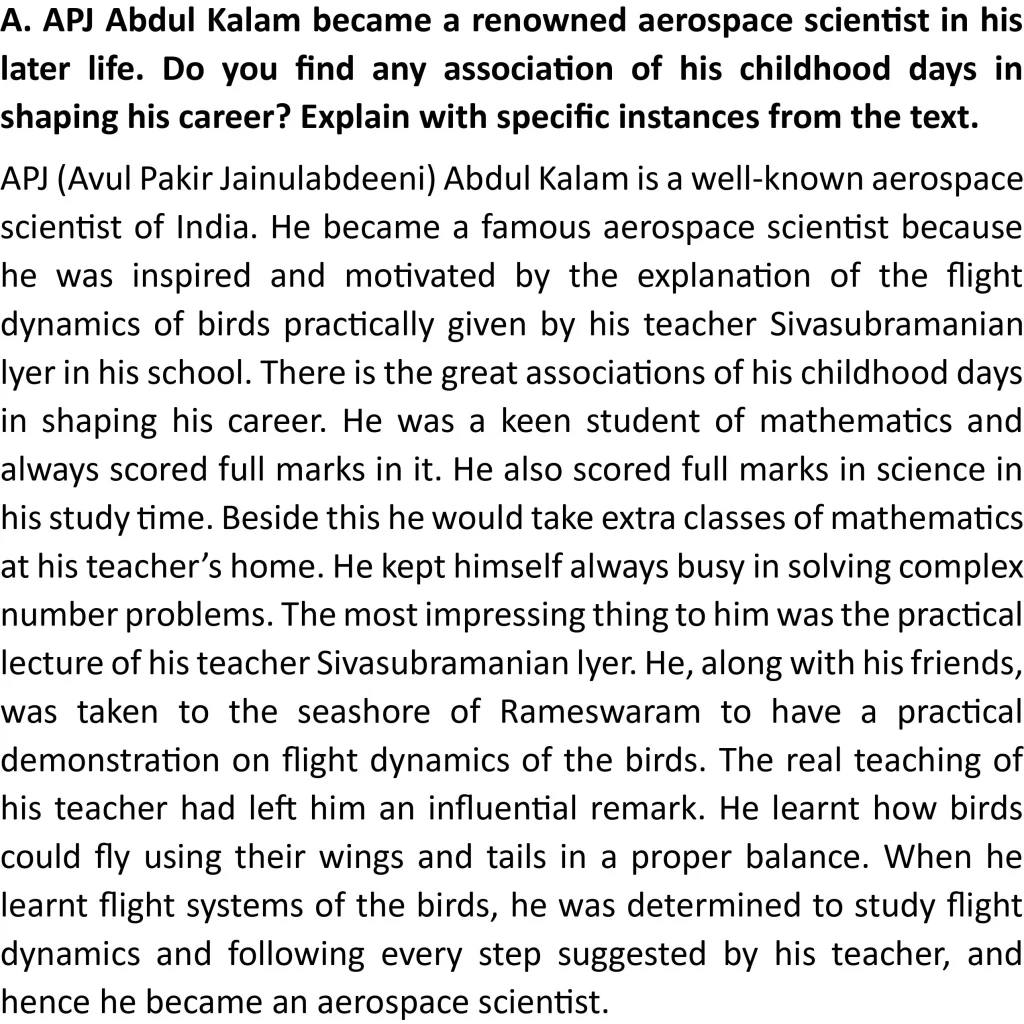

Writing

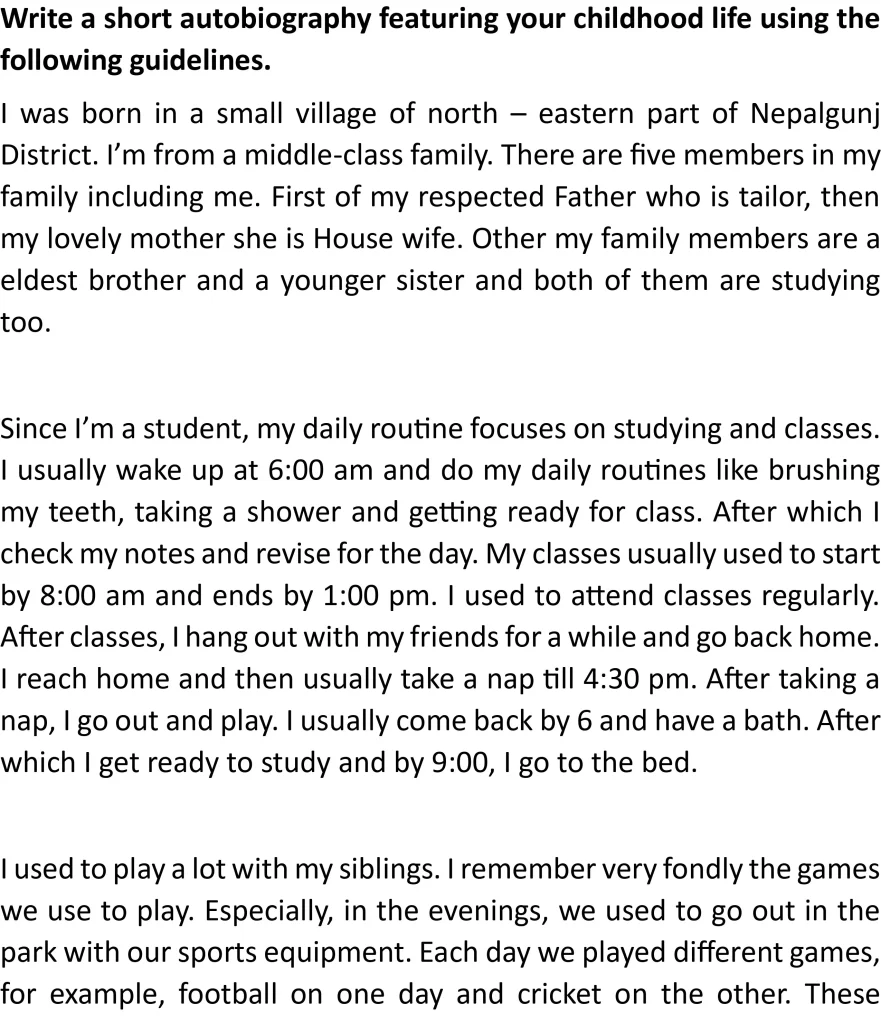
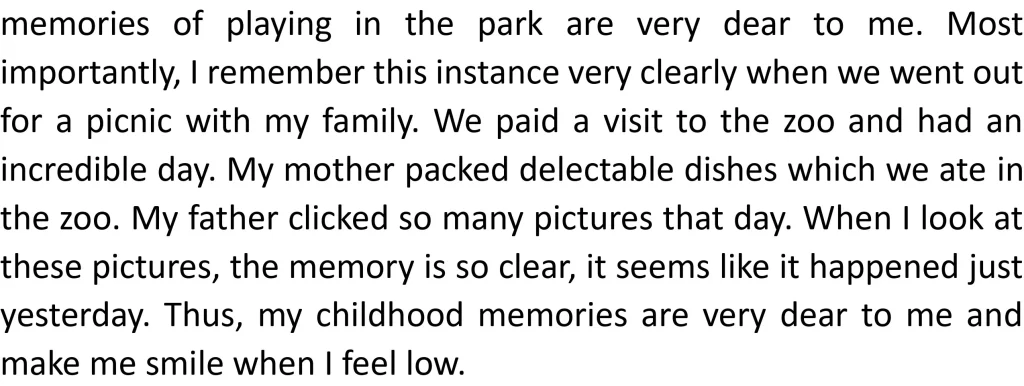
Grammar

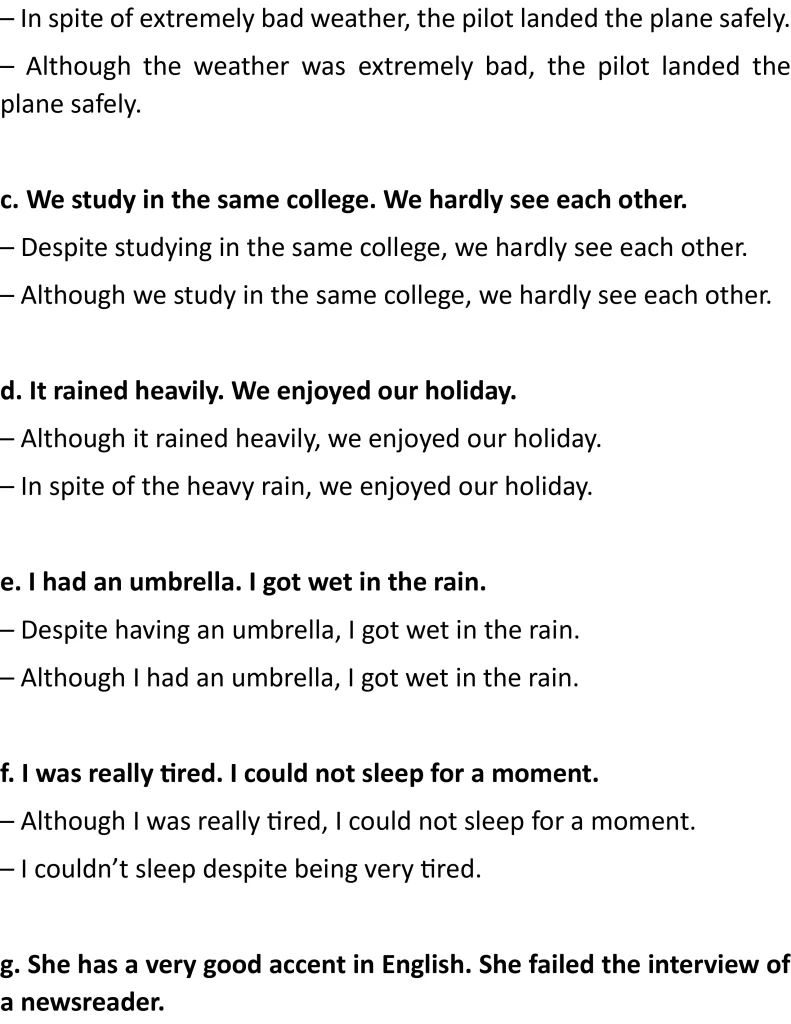
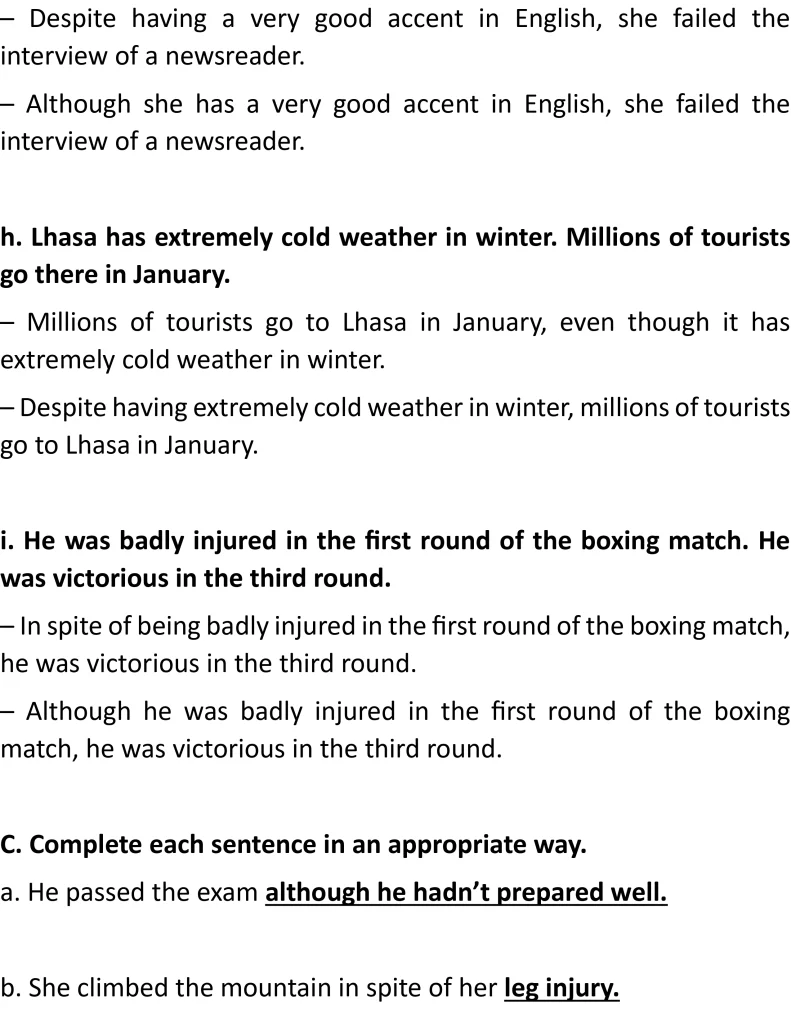
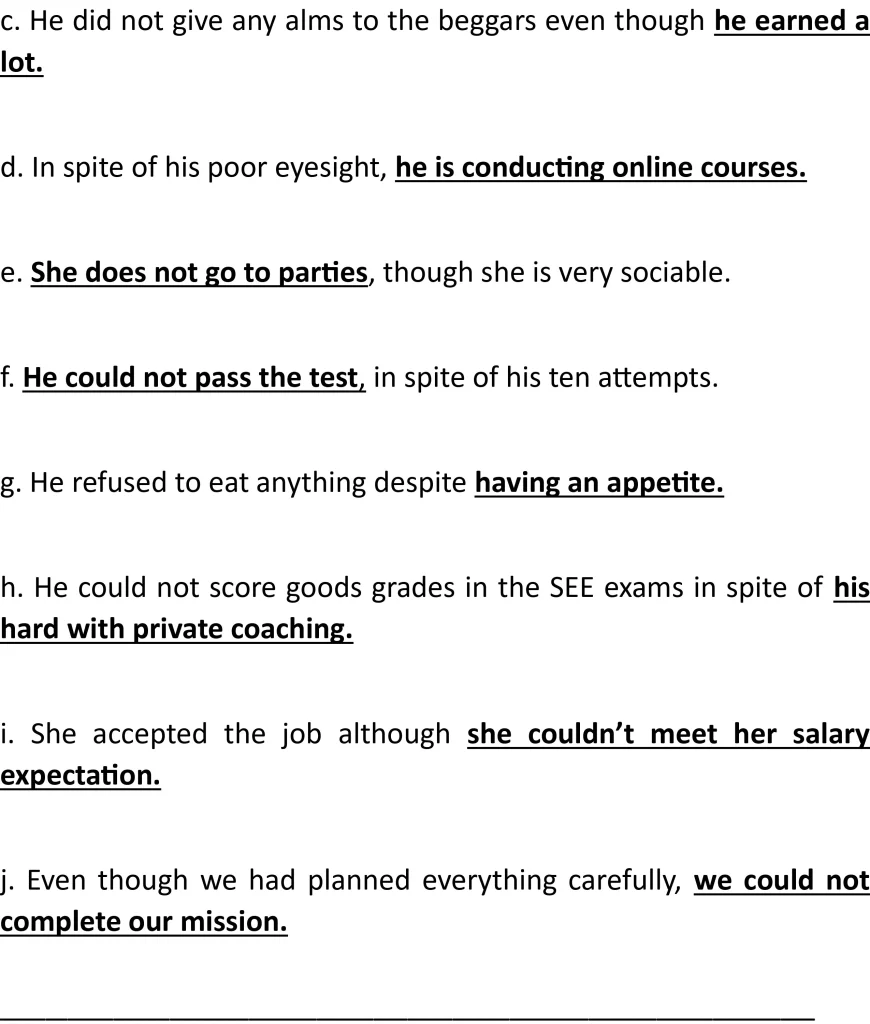
Summary of ‘Education Exercise Class 12’
The chapter Education from Class 12 English is a memoir that reflects on the childhood experiences of Dr. A.P.J. Abdul Kalam, one of India’s most respected scientists and the 11th President of India. It highlights the positive influences of his family, teachers, and school environment in shaping his values and ambitions. Kalam’s love for mathematics and science, especially flight systems, was sparked during his school days. The narrative also touches on social issues like religious discrimination, which Kalam faced firsthand, and how his teachers stood up against it. The story ultimately presents a picture of how strong mentorship and inclusive education can inspire greatness.
Key Takeaway of ‘Education Exercise Class 12’
- Abdul Kalam’s early education laid the foundation for his successful scientific career.
- His teachers played a key role in shaping his curiosity and discipline.
- Religious harmony and social tolerance are central themes in the story.
- The narrative shows the power of practical learning and inspiring mentorship.
- It encourages students to remain focused and resilient despite challenges.
- The chapter reinforces the idea that education can transform lives.
FAQ:
What is the chapter “Education” in Class 12 English about?
It is about Dr. A.P.J. Abdul Kalam’s childhood, focusing on how his education, family values, and teachers helped shape his career and character.
Who inspired Abdul Kalam’s interest in flight systems?
His science teacher, Sivasubramania Iyer, inspired his curiosity by demonstrating how birds fly during a practical lesson at the seashore.
What discrimination did Abdul Kalam face in school?
He was asked by a new teacher not to sit with his Brahmin friend because of religious differences, reflecting societal discrimination at the time.
How did Kalam respond to the discrimination?
Though hurt, he remained focused on his goals and was later supported by his teachers and friend’s family, showing the power of unity.
What role did Kalam’s father play in his education?
His father was supportive and encouraged learning. He believed in simple living and values, which greatly influenced Kalam.
Why is the teacher’s trip to the seashore significant in the story?
It symbolizes practical education and how a hands-on approach can ignite a student’s passion—in this case, Kalam’s dream of becoming a scientist.
What does the chapter “Education” teach Class 12 English students?
It teaches that education, mentorship, and an inclusive environment are essential for personal growth and overcoming social barriers.
How did Kalam show his love for learning as a child?
He regularly attended extra math classes and loved solving complex problems, which reflected his deep passion for knowledge.
What values did Kalam learn from his childhood?
He learned discipline, curiosity, tolerance, and the importance of education and hard work from his family and teachers.
Why is this chapter important for Class 12 students?
It motivates students to value education, embrace diversity, and remain determined in the face of challenges.
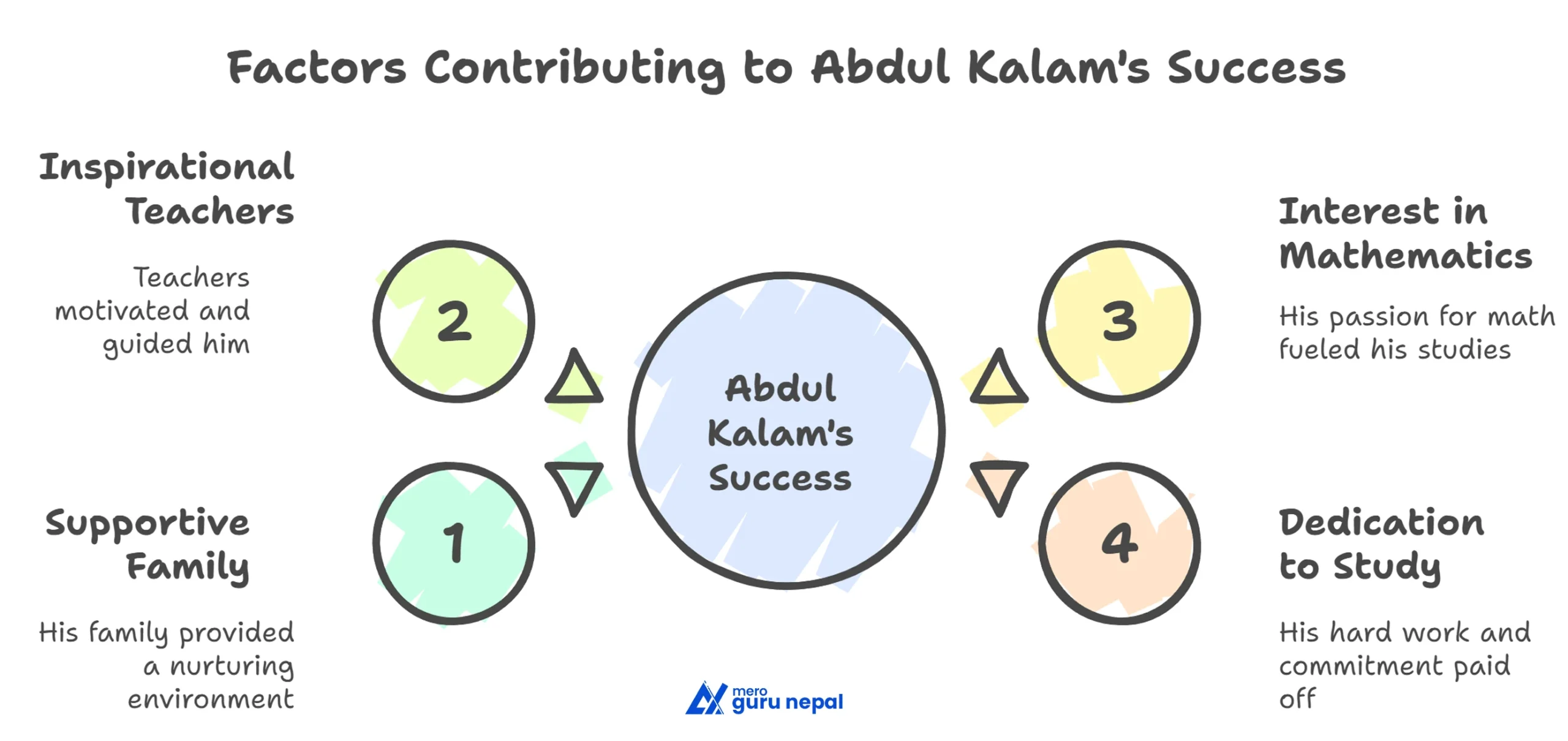
Leave a Reply